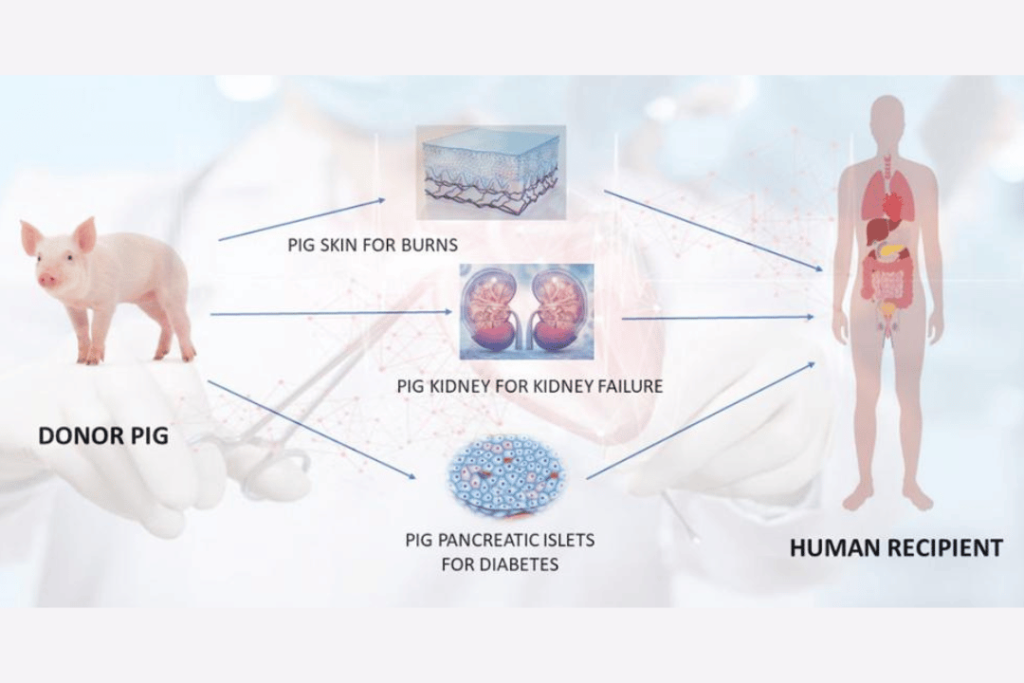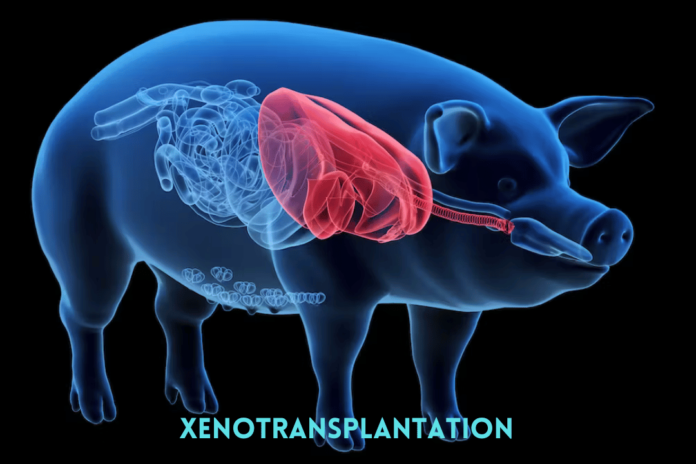A month after receiving a pig heart transplant-(Xenotransplantation), Lawrence Faucette of Maryland has made a remarkable medical advancement. In response to Faucette’s life-threatening cardiac failure and her ineligibility for a traditional heart transplant, surgeons at the University of Maryland School of Medicine offered her the ground-breaking procedure.
What is Xenotransplantation ?
This remarkable discovery comes after the same Maryland team’s first human-to-pig heart transplant, which saw David Bennett live for two months before difficulties developed. In that instance, further examinations showed that the transplanted heart contained a pig virus. The medical staff made critical improvements due to the initial experiment, including improved viral testing.
For many years, attempts at xenotransplants—the transplantation of an animal’s organ into a human recipient—failed, mainly because the recipient’s immune system rejected the foreign tissue. However, modern science has turned to genetically modified pigs to develop pig organs more suited to the human body.
Notably, the video footage made public by the hospital depicts Lawrence Faucette carefully regaining his strength after surgery with the help of a physical therapist. Despite the difficulty, he perseveres as he performs pedalling workouts. A significant achievement in xenotransplantation is that the pig heart has not shown any signs of rejection.
His heart is functioning well on its own,” said Dr. Muhammad Mohiuddin, director of the Maryland team’s cardiac xenotransplantation program, highlighting the accomplishment of this ground-breaking treatment. Physical therapists are helping Faucette acquire the strength needed to walk as his recuperation has advanced to the point where he can now stand.

The implications of successful xenotransplants are profound. With over 100,000 people in the United States awaiting organ transplants, particularly kidneys, and many tragically succumbing to the wait, xenotransplantation offers hope. Several scientific teams have been testing pig kidneys and hearts in monkeys and donated human bodies, aiming to gather the data necessary for the Food and Drug Administration to approve formal xenotransplant studies.
Red Meat Consumption Linked to Increased Risk of Type 2 Diabetes
A genetically altered pig kidney transplanted into a human body was successful and had been functioning normally for more than a month, according to a report from NYU Langone Health. This is a significant step in using pig organs to save human lives. According to Dr. Robert Montgomery, head of the NYU Langone Transplant Institute, a single genetic alteration allowed the pig kidney to perform like a human kidney for 32 days without experiencing rejection.
This discovery can potentially transform organ transplantation, giving hope to the many people on transplant waiting lists due to the ongoing lack of transplantable organs. The significance of this ground-breaking medical development was highlighted by the fact that the family of Maurice “Mo” Miller, a 57-year-old from upstate New York, sacrificed his corpse for the experimental pig kidney transplant.




[…] Xenotransplantation: Pig Organs Function Successfully in Humans […]